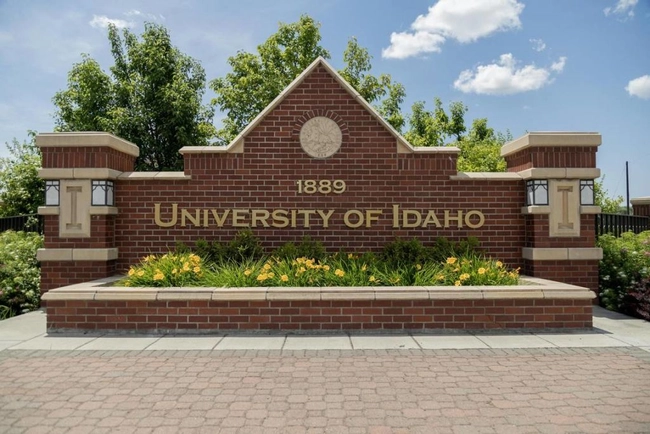Idaho Murder Suspect Persists in Disputing DNA Evidence on Knife Sheath at Crime Scene
In a recent development, the defense attorney representing a 28-year-old man accused of killing four University of Idaho students is questio

In a recent development, defense attorney questions validity of DNA evidence
In a recent development, the defense attorney representing a 28-year-old man accused of killing four University of Idaho students is questioning the validity of DNA evidence found at the crime scene. The defense attorney, Anne Taylor, has argued that the prosecution has not provided complete DNA information from the crime. This raises doubts about the accuracy and reliability of the DNA evidence presented by the prosecution.
Prosecution accused of not providing all DNA evidence
In a court hearing, a person mentioned that DNA discovery had been provided for a knife sheath, but not for three other unidentified male DNA samples found at an off-campus residence in Moscow, Idaho. The person claimed that the prosecutors had not provided all the evidence, while the prosecutors argued that they had turned over everything they had.
Prosecution claims to have provided all evidence
Latah County Prosecuting Attorney Bill Thompson has stated that they have provided the defense with all the evidence they have received from the lab. The defense has requested DNA work-ups on other individuals, but Thompson argues that if they don't have those work-ups, it means they were never done and therefore cannot be produced.
Defense objects to lack of detailed breakdown of genetic genealogy
In a recent court filing, the defense attorney for a suspect in a murder case objected to the prosecutor's refusal to provide a detailed breakdown of how genetic genealogy was used to link the accused to the crimes. The defense attorney argued that DNA from three other men was found at the crime scene where four individuals were murdered. Two men's DNA was found inside the house, while the DNA of a third man was found outside the home on a glove.
Uncertainty about DNA samples and national DNA database
In a recent development, three DNA samples collected from a home where a crime occurred do not match the suspect's DNA. However, it is unclear when these DNA samples were left at the home, which was known for hosting frequent parties. The suspect and his attorney claim that these DNA samples were never compared to the national DNA database to search for a potential match.
Prosecutors defend use of DNA evidence
Prosecutors have defended their decision not to disclose specific details about how genetic genealogy was used to connect a suspect to a crime. They claim that the suspect's DNA sample directly matched DNA found on a knife sheath discovered at the crime scene, making the use of genetic genealogy unnecessary for the trial.
Police make progress in murder investigation through DNA evidence
Police have made progress in a murder investigation by collecting DNA evidence from the suspect's parents' house in Pennsylvania. They obtained DNA from the outside trash cans that partially matched the DNA found on the knife sheath. This indicated that they had the DNA of the suspect's father. Further DNA collection from the suspect directly linked him to the sheath, which was discovered on a bed next to the bodies of the victims, Goncalves and Mogen. The type of knife held by the sheath was consistent with the weapon used to kill the four victims.
Defense makes claims of planted DNA and alibi
The defense attorneys of a suspect in a crime have made two claims in their client's defense. In July, they suggested that the suspect's DNA found at the crime scene may have been planted by the police. However, they could not provide a motive as to why the suspect would have been targeted for the crime. More recently, the defense attorneys provided an alibi for the suspect, stating that he was driving around during the time the crime took place.
Suspect's whereabouts during the crime in question
The suspect in a criminal case has been revealed to have a habit of going for drives alone, often at night. According to the suspect's attorney, there is no specific alibi for the suspect's whereabouts during the late night and early morning hours of November 12-13, 2022. The attorney states that the suspect was out driving during this time, but there is no specific witness or location to confirm their exact movements.
Suspect arrested based on video footage
A suspect has been arrested in connection with a murder case after evidence from video footage helped narrow down the timeframe of the crime. The footage showed a white Hyundai Elantra without a front license plate, which was seen multiple times near the crime scene. The vehicle was registered in Pennsylvania, where front license plates are not required, but was spotted in Washington state. The suspect attended Washington State University and was seen driving away from the direction of the off-campus residence at high speed.
Matching vehicle and suspect description
The video footage from the WSU campus shows a white Hyundai Elantra leaving the area and heading towards Moscow at 2:53 a.m. The same vehicle was later observed on five cameras in Pullman and the WSU campus at 5:25 a.m. Police investigated white Hyundai Elantras registered at WSU on November 29, and found one belonging to the man who was eventually arrested for the crime. The police compared the owner's driver's license with the physical description of the suspect provided by one of the surviving roommates and determined that they matched.
